D87759
7-Diethylamino-4-methylcoumarin
99%
Synonym(s):
Coumarin 1
Sign Into View Organizational & Contract Pricing
All Photos(4)
About This Item
Empirical Formula (Hill Notation):
C14H17NO2
CAS Number:
Molecular Weight:
231.29
EC Number:
MDL number:
UNSPSC Code:
12352103
PubChem Substance ID:
NACRES:
NA.23
Recommended Products
assay
99%
form
solid
mp
72-75 °C (lit.)
SMILES string
CCN(CC)c1ccc2C(C)=CC(=O)Oc2c1
InChI
1S/C14H17NO2/c1-4-15(5-2)11-6-7-12-10(3)8-14(16)17-13(12)9-11/h6-9H,4-5H2,1-3H3
InChI key
AFYCEAFSNDLKSX-UHFFFAOYSA-N
Looking for similar products? Visit Product Comparison Guide
General description
7-Diethylamino-4-methylcoumarin (C1) is a bichromophoric fluorescent laser dye, which has a laser action at 460 nm.
Application
Terbium based metal organic framework may be doped with C1 for potential use in ratiometric temperature sensing. C1 may also be used as a fluorescent photo-initiator that can act as an optical brightener for use in the synthesis of the light emitting diode (LED) based hydrogel.
Storage Class
11 - Combustible Solids
wgk_germany
WGK 2
flash_point_f
Not applicable
flash_point_c
Not applicable
ppe
Eyeshields, Gloves, type N95 (US)
Choose from one of the most recent versions:
Already Own This Product?
Find documentation for the products that you have recently purchased in the Document Library.
Customers Also Viewed
Yan Liang et al.
Biomaterials, 100, 76-90 (2016-06-01)
A near infrared (NIR) light responsive chromophore 7-(diethylamino)-4-(hydroxymethyl)-2H-chromen-2-one (DEACM) was synthesized and incorporated to β-cyclodextrins with cRGD functionalized poly(ethylene glycol), the amphiphiles were coordinated with Au nanorods or nanoparticles to load anticancer drug doxorubicin (DOX) for fabricating hybrid nanoparticles. The
A dye encapsulated terbium-based metal-organic framework for ratiometric temperature sensing
Xia T, et al.
Dalton Transactions, 45(46), 18689-18695 (2016)
Synthesis and spectroscopic characterization of coumarin 440 dye doped silica gel rods
Haque FZ and Husain M
Optik, 125(10), 2308-2312 (2014)
Wiktor Kasprzyk et al.
International journal of molecular sciences, 21(21) (2020-11-14)
Herein, a novel fluorescent method for the determination of d-panthenol (DP) level in solutions with no separate hydrolysis step has been revealed based on the utilization of citric acid (CA) as a derivatizing agent. Consequently, the essential parameters of the
Wiktor Kasprzyk et al.
The Analyst, 146(6), 1897-1906 (2021-01-23)
Herein, a novel fluorescent method for the determination of GSH levels in aqueous solutions involving the utilization of citric acid as a derivatization reagent was developed. Therefore, the crucial parameters of the derivatization process were established from what has resulted
Our team of scientists has experience in all areas of research including Life Science, Material Science, Chemical Synthesis, Chromatography, Analytical and many others.
Contact Technical Service


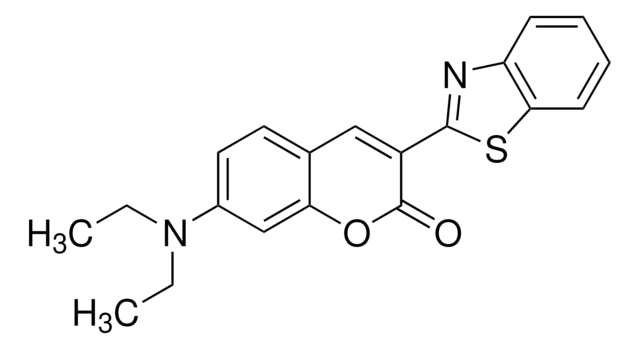

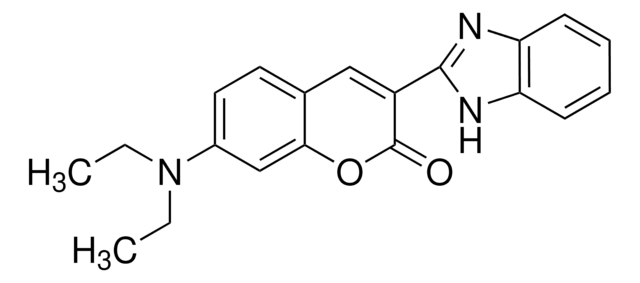
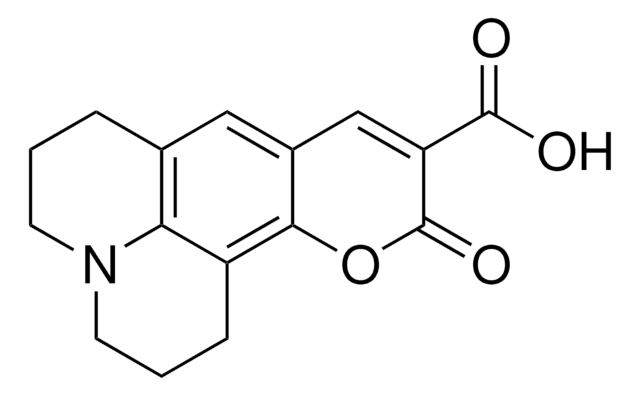
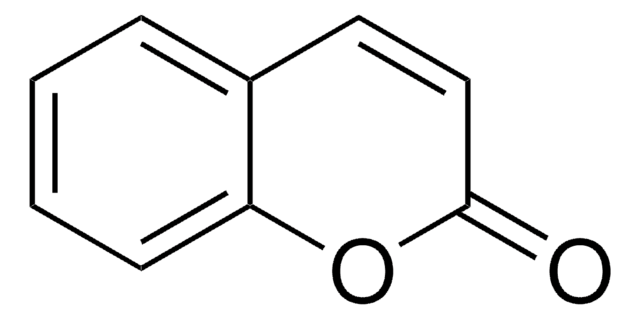
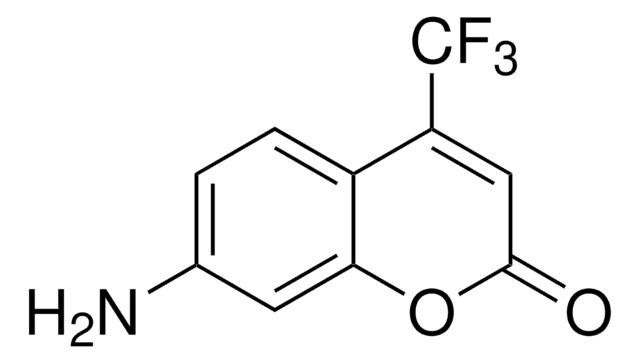

![7-Diethylamino-3-[4-(iodoacetamido)phenyl]-4-methylcoumarin BioReagent, suitable for fluorescence, ≥85% (HPLC)](/deepweb/assets/sigmaaldrich/product/structures/151/285/a8e712af-fe50-4dab-acb6-1ce06d8349f7/640/a8e712af-fe50-4dab-acb6-1ce06d8349f7.png)